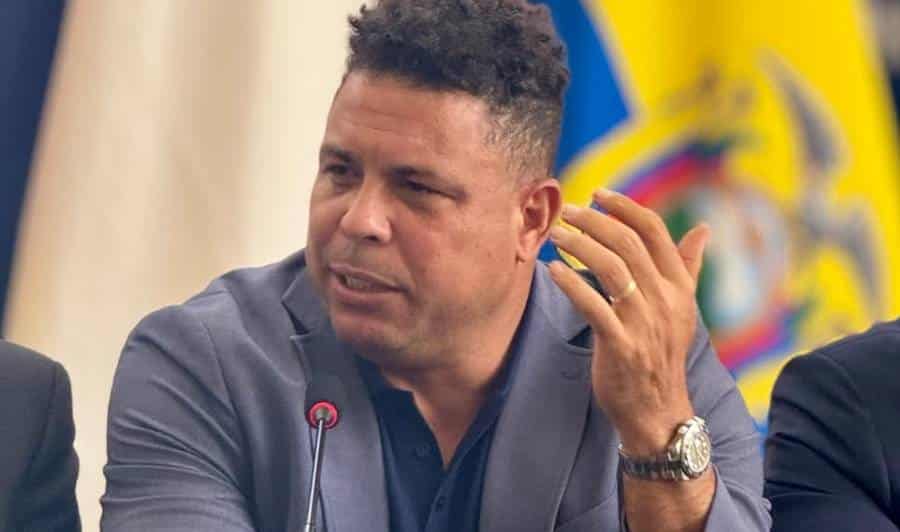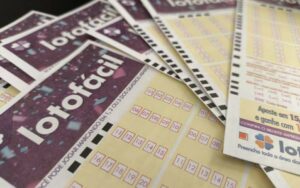On the evening of April 12, 2025, the Rio de Janeiro State Legislative Assembly marked a historic moment by approving the Tiradentes medal for Ronaldo Luís Nazário de Lima, globally celebrated as Ronaldo Fenômeno. The prestigious award, the highest honor bestowed by the Rio Parliament, recognizes the former footballer’s extraordinary career and enduring influence. Born in Bento Ribeiro, a vibrant neighborhood in Rio’s North Zone, Ronaldo’s journey from local fields to international stardom has inspired millions. The unanimous approval of Bill 1,156/2024, proposed by Deputy TH Jóias, underscores his impact as an athlete and entrepreneur. The measure awaits enactment by House Speaker Rodrigo Bacellar and will soon appear in the Legislative Official Gazette, cementing Ronaldo’s place among Rio’s most distinguished figures.
Ronaldo’s career spans iconic clubs like Cruzeiro, PSV, Barcelona, and Real Madrid, where his electrifying talent redefined the role of a striker. Named FIFA’s World Player of the Year three times, he also led Brazil to two World Cup victories, earning the Golden Boot in 2002. His story, however, is not just about trophies but about overcoming adversity, including career-threatening injuries that tested his resolve. The Tiradentes medal celebrates this resilience, honoring a man who carried Rio’s spirit to the world.
Beyond the pitch, Ronaldo’s ventures as an entrepreneur, notably his ownership of Real Valladolid in Spain, highlight his ongoing commitment to football. The award reflects his contributions to Rio’s cultural and social fabric, recognizing a legacy that transcends sport. As fans and officials prepare for the upcoming ceremony, the celebration of Ronaldo’s achievements continues to resonate, uniting communities and reigniting pride in his roots.
Early brilliance on the pitch
Ronaldo’s ascent began in his teens at Cruzeiro, where he scored an astonishing 44 goals in 47 matches. By 17, he was part of Brazil’s 1994 World Cup-winning squad, a sign of his prodigious talent. His move to PSV in the Netherlands showcased his explosive speed and clinical finishing, quickly earning him a global following. At Barcelona, his 47 goals in a single season, including a legendary solo run against Compostela in 1996, cemented his status as a phenomenon, captivating fans with his flair and precision.
The journey continued at Inter Milan, where Ronaldo faced his first major setbacks with knee injuries. Despite these challenges, his determination shone through, leading to a triumphant return at Real Madrid. There, he joined the “Galácticos” alongside Zidane and Figo, scoring 104 goals in 177 games. His final chapter in Brazil with Corinthians brought domestic titles, proving his ability to perform even after years of physical strain. These milestones form the backbone of a career that the Alerj now honors.
Ronaldo’s influence reshaped football. His dynamic style inspired attackers worldwide, from Thierry Henry to Kylian Mbappé, who have cited his innovation as a benchmark. The Tiradentes medal acknowledges not just his stats—352 club goals in 518 matches—but the joy and creativity he brought to the game, forever linked to Rio’s footballing heritage.
- Cruzeiro breakout: Scored 44 goals at 17, launching a global career.
- Barcelona magic: 47 goals in one season, including an iconic Compostela strike.
- Real Madrid glory: 104 goals with the Galácticos, defying injury setbacks.
- Corinthians finale: Led the team to Paulista and Copa do Brasil titles.
Resilience against the odds
Few athletes have faced trials as daunting as Ronaldo’s. In 1999 and 2000, consecutive knee injuries sidelined him for nearly two years, with doctors doubting his return to elite football. Yet, in 2002, he defied the odds, spearheading Brazil’s World Cup triumph with eight goals, including a brace in the final against Germany. This comeback, one of sport’s greatest, showcased his unyielding spirit, a quality now celebrated by the Alerj.
Off the field, Ronaldo’s resilience extended to new arenas. After retiring in 2011, he ventured into sports management, acquiring a majority stake in Real Valladolid in 2018. His leadership navigated the club through financial struggles, achieving promotion to La Liga in 2024. This bold move made him a pioneer among former players, blending his on-field instincts with strategic vision. His ability to adapt and succeed in uncharted territory mirrors the perseverance that defined his playing days.
Ronaldo’s commitment to social causes also shapes his legacy. He has supported campaigns addressing hunger and education in Brazil, particularly in Rio’s underserved communities. These efforts, though quieter than his football feats, resonate with the Tiradentes medal’s purpose: to honor those who uplift society. His story continues to inspire young athletes dreaming of overcoming their own obstacles.
Significance of the Tiradentes medal
Established in 1989, the Tiradentes medal is Rio’s most coveted legislative honor, reserved for individuals whose contributions transform the state. Past recipients include football legend Zico and leaders in arts, science, and public service. Awarding it to Ronaldo highlights football’s role as a cultural force in Rio, where the sport binds communities and fuels aspirations. The medal places him among icons who have shaped the state’s identity.
Ronaldo’s roots in Bento Ribeiro add depth to the honor. Growing up in a working-class neighborhood, he navigated challenges familiar to many Cariocas, rising through talent and grit. His global success—playing in four countries and scoring on every major stage—carried Rio’s name far beyond Brazil, making him a fitting recipient. The Alerj’s decision reflects pride in a local hero who never forgot his origins.
The bill’s approval on April 12 saw rare unity among deputies, who viewed Ronaldo’s story as a universal example of excellence. The upcoming enactment and ceremony, expected in May, will draw dignitaries and fans, celebrating a figure whose impact spans generations. The ev
Global footprint of a legend
Ronaldo’s career unfolded across continents, leaving an indelible mark wherever he played. At PSV, he scored 54 goals in 57 games, a staggering rate for a teenager. In Italy, despite injuries, his 59 goals for Inter Milan endeared him to fans who still chant his name. At Real Madrid, his partnership with attacking stars produced unforgettable moments, like his hat-trick against Manchester United in 2003, applauded by rival fans.
With Brazil, Ronaldo’s 15 World Cup goals in 19 matches rank among the tournament’s best. His 2002 performance, paired with Rivaldo and Ronaldinho, remains a benchmark for teamwork and flair. Beyond football, his role as a UN ambassador since 2007 has tackled global poverty, extending his influence to humanitarian causes. These achievements amplify the Alerj’s decision to honor him as a global ambassador for Rio.
The footballer’s charisma also bridged cultures. From European stadiums to Brazilian favelas, Ronaldo’s smile and skill united diverse audiences. His ability to connect—whether through a goal or a gesture—made him a symbol of football’s universal appeal, a legacy the Tiradentes medal now enshrines.
- European dominance: Scored 208 goals across Spain, Italy, and the Netherlands.
- World Cup hero: 15 goals, with a record-setting eight in 2002.
- UN ambassador: Advocated for poverty reduction on a global stage.
- Cultural icon: United fans worldwide with skill and charisma.
Business ventures and vision
Retirement did not slow Ronaldo. In 2018, he took control of Real Valladolid, becoming the first Brazilian ex-player to own a major European club. His tenure faced scrutiny, with relegation in 2022, but promotion in 2024 silenced critics, proving his business acumen. Investments in marketing and youth development have revitalized the club, reflecting his forward-thinking approach.
In Brazil, Ronaldo advises Cruzeiro, aiding its recovery from financial turmoil. His agency, managing young talents, shapes the next generation of stars. These ventures reveal a man driven by innovation, unwilling to rest on past laurels. The Alerj’s recognition celebrates this multifaceted career, from scoring goals to building institutions.
Ronaldo’s business moves carry risks, yet his willingness to embrace them echoes his playing days. By blending passion for football with strategic planning, he sets a model for athletes transitioning to new roles. The Tiradentes medal honors this evolution, acknowledging a leader who continues to shape the sport.
Upcoming milestones for the honor
The Tiradentes medal process follows a clear schedule, ensuring Ronaldo’s recognition is formalized:
- April 15, 2025: Resolution published in the Legislative Official Gazette.
- May 2025 (date TBD): Ceremonial medal presentation with deputies and guests.
- June 2025: Community event in Rio, potentially featuring Ronaldo’s involvement.
Community and cultural impact
News of the medal sparked widespread celebration, particularly in Bento Ribeiro. Locals organized screenings of Ronaldo’s classic matches, from his Cruzeiro debut to the 2002 World Cup final, fostering a sense of pride. Social media buzzed with tributes, with fans and clubs like Corinthians and Real Madrid lauding the honor. The announcement trended online, reflecting Ronaldo’s enduring popularity.
In Rio, the award highlights football’s role in social mobility. Ronaldo’s journey from a modest upbringing to global fame resonates with youth in similar circumstances, offering hope amid challenges. Schools and sports programs in the city have begun using his story to motivate students, amplifying the medal’s significance.
The honor also boosts Rio’s cultural narrative. Football, woven into the state’s identity, finds in Ronaldo a figure who embodies its spirit—creative, resilient, and communal. The Alerj’s decision reinforces this connection, ensuring his legacy inspires future generations.
Lasting influence at 48
At 48, Ronaldo remains a dynamic presence. He speaks at global sports forums, sharing insights from his Valladolid experience. In Brazil, he mentors young players, offering guidance on navigating fame and pressure. His recent talks at a European sports summit drew praise for their clarity, proving his voice still carries weight.
Ronaldo’s impact on Brazilian football endures. He paved the way for stars like Neymar, showing that local talent can dominate globally. His recovery from injuries reshaped how athletes approach rehabilitation, emphasizing mental strength. The Tiradentes medal captures this ongoing influence, honoring a man whose story is far from finished.
Rio sees Ronaldo as more than an athlete—a cultural ambassador who exported its vibrancy. From Maracanã to Madrid, his career wove a thread of Carioca pride, now celebrated through this historic award. The medal ensures his contributions, past and present, remain etched in the state’s memory.

On the evening of April 12, 2025, the Rio de Janeiro State Legislative Assembly marked a historic moment by approving the Tiradentes medal for Ronaldo Luís Nazário de Lima, globally celebrated as Ronaldo Fenômeno. The prestigious award, the highest honor bestowed by the Rio Parliament, recognizes the former footballer’s extraordinary career and enduring influence. Born in Bento Ribeiro, a vibrant neighborhood in Rio’s North Zone, Ronaldo’s journey from local fields to international stardom has inspired millions. The unanimous approval of Bill 1,156/2024, proposed by Deputy TH Jóias, underscores his impact as an athlete and entrepreneur. The measure awaits enactment by House Speaker Rodrigo Bacellar and will soon appear in the Legislative Official Gazette, cementing Ronaldo’s place among Rio’s most distinguished figures.
Ronaldo’s career spans iconic clubs like Cruzeiro, PSV, Barcelona, and Real Madrid, where his electrifying talent redefined the role of a striker. Named FIFA’s World Player of the Year three times, he also led Brazil to two World Cup victories, earning the Golden Boot in 2002. His story, however, is not just about trophies but about overcoming adversity, including career-threatening injuries that tested his resolve. The Tiradentes medal celebrates this resilience, honoring a man who carried Rio’s spirit to the world.
Beyond the pitch, Ronaldo’s ventures as an entrepreneur, notably his ownership of Real Valladolid in Spain, highlight his ongoing commitment to football. The award reflects his contributions to Rio’s cultural and social fabric, recognizing a legacy that transcends sport. As fans and officials prepare for the upcoming ceremony, the celebration of Ronaldo’s achievements continues to resonate, uniting communities and reigniting pride in his roots.
Early brilliance on the pitch
Ronaldo’s ascent began in his teens at Cruzeiro, where he scored an astonishing 44 goals in 47 matches. By 17, he was part of Brazil’s 1994 World Cup-winning squad, a sign of his prodigious talent. His move to PSV in the Netherlands showcased his explosive speed and clinical finishing, quickly earning him a global following. At Barcelona, his 47 goals in a single season, including a legendary solo run against Compostela in 1996, cemented his status as a phenomenon, captivating fans with his flair and precision.
The journey continued at Inter Milan, where Ronaldo faced his first major setbacks with knee injuries. Despite these challenges, his determination shone through, leading to a triumphant return at Real Madrid. There, he joined the “Galácticos” alongside Zidane and Figo, scoring 104 goals in 177 games. His final chapter in Brazil with Corinthians brought domestic titles, proving his ability to perform even after years of physical strain. These milestones form the backbone of a career that the Alerj now honors.
Ronaldo’s influence reshaped football. His dynamic style inspired attackers worldwide, from Thierry Henry to Kylian Mbappé, who have cited his innovation as a benchmark. The Tiradentes medal acknowledges not just his stats—352 club goals in 518 matches—but the joy and creativity he brought to the game, forever linked to Rio’s footballing heritage.
- Cruzeiro breakout: Scored 44 goals at 17, launching a global career.
- Barcelona magic: 47 goals in one season, including an iconic Compostela strike.
- Real Madrid glory: 104 goals with the Galácticos, defying injury setbacks.
- Corinthians finale: Led the team to Paulista and Copa do Brasil titles.
Resilience against the odds
Few athletes have faced trials as daunting as Ronaldo’s. In 1999 and 2000, consecutive knee injuries sidelined him for nearly two years, with doctors doubting his return to elite football. Yet, in 2002, he defied the odds, spearheading Brazil’s World Cup triumph with eight goals, including a brace in the final against Germany. This comeback, one of sport’s greatest, showcased his unyielding spirit, a quality now celebrated by the Alerj.
Off the field, Ronaldo’s resilience extended to new arenas. After retiring in 2011, he ventured into sports management, acquiring a majority stake in Real Valladolid in 2018. His leadership navigated the club through financial struggles, achieving promotion to La Liga in 2024. This bold move made him a pioneer among former players, blending his on-field instincts with strategic vision. His ability to adapt and succeed in uncharted territory mirrors the perseverance that defined his playing days.
Ronaldo’s commitment to social causes also shapes his legacy. He has supported campaigns addressing hunger and education in Brazil, particularly in Rio’s underserved communities. These efforts, though quieter than his football feats, resonate with the Tiradentes medal’s purpose: to honor those who uplift society. His story continues to inspire young athletes dreaming of overcoming their own obstacles.
Significance of the Tiradentes medal
Established in 1989, the Tiradentes medal is Rio’s most coveted legislative honor, reserved for individuals whose contributions transform the state. Past recipients include football legend Zico and leaders in arts, science, and public service. Awarding it to Ronaldo highlights football’s role as a cultural force in Rio, where the sport binds communities and fuels aspirations. The medal places him among icons who have shaped the state’s identity.
Ronaldo’s roots in Bento Ribeiro add depth to the honor. Growing up in a working-class neighborhood, he navigated challenges familiar to many Cariocas, rising through talent and grit. His global success—playing in four countries and scoring on every major stage—carried Rio’s name far beyond Brazil, making him a fitting recipient. The Alerj’s decision reflects pride in a local hero who never forgot his origins.
The bill’s approval on April 12 saw rare unity among deputies, who viewed Ronaldo’s story as a universal example of excellence. The upcoming enactment and ceremony, expected in May, will draw dignitaries and fans, celebrating a figure whose impact spans generations. The ev
Global footprint of a legend
Ronaldo’s career unfolded across continents, leaving an indelible mark wherever he played. At PSV, he scored 54 goals in 57 games, a staggering rate for a teenager. In Italy, despite injuries, his 59 goals for Inter Milan endeared him to fans who still chant his name. At Real Madrid, his partnership with attacking stars produced unforgettable moments, like his hat-trick against Manchester United in 2003, applauded by rival fans.
With Brazil, Ronaldo’s 15 World Cup goals in 19 matches rank among the tournament’s best. His 2002 performance, paired with Rivaldo and Ronaldinho, remains a benchmark for teamwork and flair. Beyond football, his role as a UN ambassador since 2007 has tackled global poverty, extending his influence to humanitarian causes. These achievements amplify the Alerj’s decision to honor him as a global ambassador for Rio.
The footballer’s charisma also bridged cultures. From European stadiums to Brazilian favelas, Ronaldo’s smile and skill united diverse audiences. His ability to connect—whether through a goal or a gesture—made him a symbol of football’s universal appeal, a legacy the Tiradentes medal now enshrines.
- European dominance: Scored 208 goals across Spain, Italy, and the Netherlands.
- World Cup hero: 15 goals, with a record-setting eight in 2002.
- UN ambassador: Advocated for poverty reduction on a global stage.
- Cultural icon: United fans worldwide with skill and charisma.
Business ventures and vision
Retirement did not slow Ronaldo. In 2018, he took control of Real Valladolid, becoming the first Brazilian ex-player to own a major European club. His tenure faced scrutiny, with relegation in 2022, but promotion in 2024 silenced critics, proving his business acumen. Investments in marketing and youth development have revitalized the club, reflecting his forward-thinking approach.
In Brazil, Ronaldo advises Cruzeiro, aiding its recovery from financial turmoil. His agency, managing young talents, shapes the next generation of stars. These ventures reveal a man driven by innovation, unwilling to rest on past laurels. The Alerj’s recognition celebrates this multifaceted career, from scoring goals to building institutions.
Ronaldo’s business moves carry risks, yet his willingness to embrace them echoes his playing days. By blending passion for football with strategic planning, he sets a model for athletes transitioning to new roles. The Tiradentes medal honors this evolution, acknowledging a leader who continues to shape the sport.
Upcoming milestones for the honor
The Tiradentes medal process follows a clear schedule, ensuring Ronaldo’s recognition is formalized:
- April 15, 2025: Resolution published in the Legislative Official Gazette.
- May 2025 (date TBD): Ceremonial medal presentation with deputies and guests.
- June 2025: Community event in Rio, potentially featuring Ronaldo’s involvement.
Community and cultural impact
News of the medal sparked widespread celebration, particularly in Bento Ribeiro. Locals organized screenings of Ronaldo’s classic matches, from his Cruzeiro debut to the 2002 World Cup final, fostering a sense of pride. Social media buzzed with tributes, with fans and clubs like Corinthians and Real Madrid lauding the honor. The announcement trended online, reflecting Ronaldo’s enduring popularity.
In Rio, the award highlights football’s role in social mobility. Ronaldo’s journey from a modest upbringing to global fame resonates with youth in similar circumstances, offering hope amid challenges. Schools and sports programs in the city have begun using his story to motivate students, amplifying the medal’s significance.
The honor also boosts Rio’s cultural narrative. Football, woven into the state’s identity, finds in Ronaldo a figure who embodies its spirit—creative, resilient, and communal. The Alerj’s decision reinforces this connection, ensuring his legacy inspires future generations.
Lasting influence at 48
At 48, Ronaldo remains a dynamic presence. He speaks at global sports forums, sharing insights from his Valladolid experience. In Brazil, he mentors young players, offering guidance on navigating fame and pressure. His recent talks at a European sports summit drew praise for their clarity, proving his voice still carries weight.
Ronaldo’s impact on Brazilian football endures. He paved the way for stars like Neymar, showing that local talent can dominate globally. His recovery from injuries reshaped how athletes approach rehabilitation, emphasizing mental strength. The Tiradentes medal captures this ongoing influence, honoring a man whose story is far from finished.
Rio sees Ronaldo as more than an athlete—a cultural ambassador who exported its vibrancy. From Maracanã to Madrid, his career wove a thread of Carioca pride, now celebrated through this historic award. The medal ensures his contributions, past and present, remain etched in the state’s memory.







